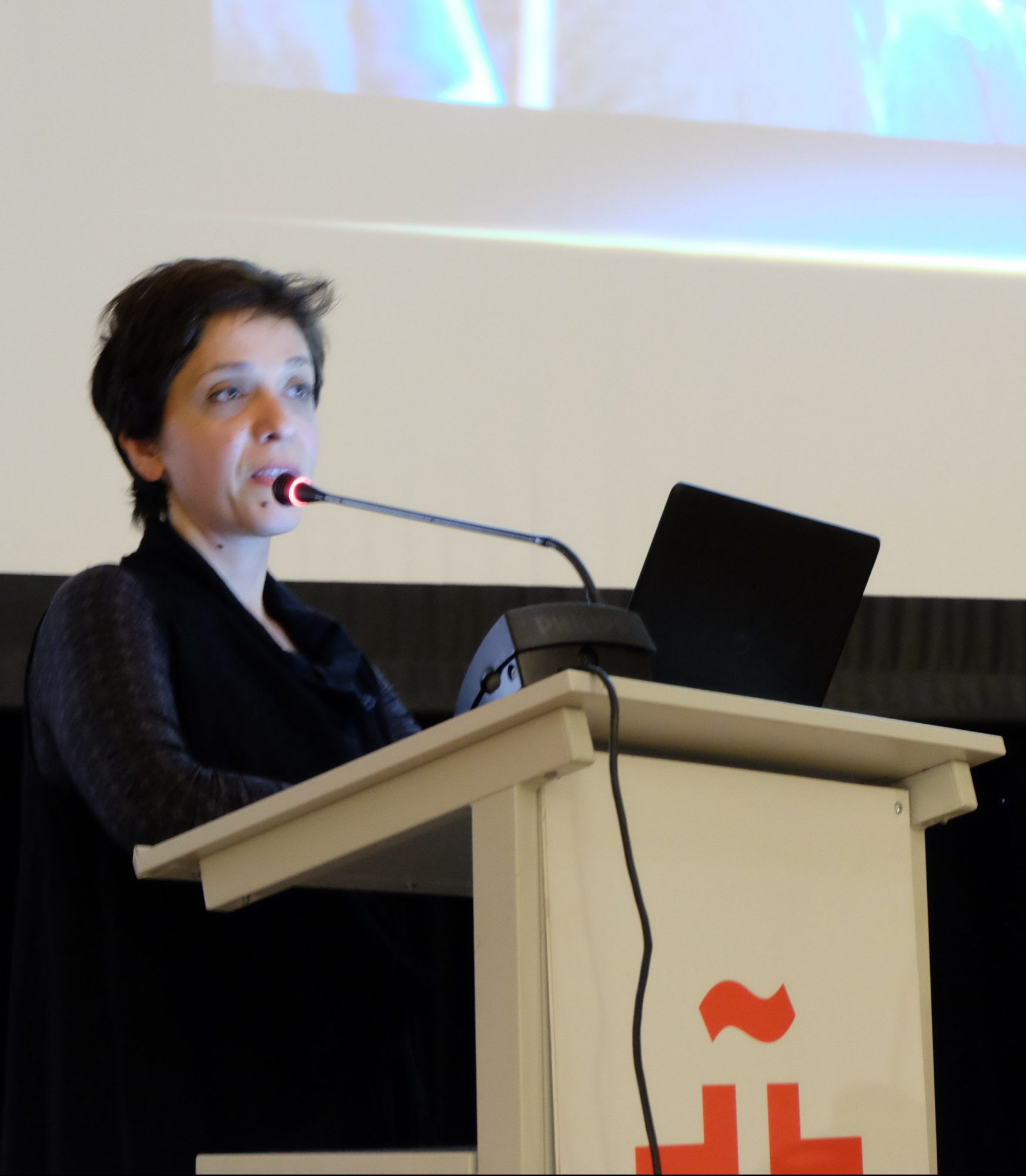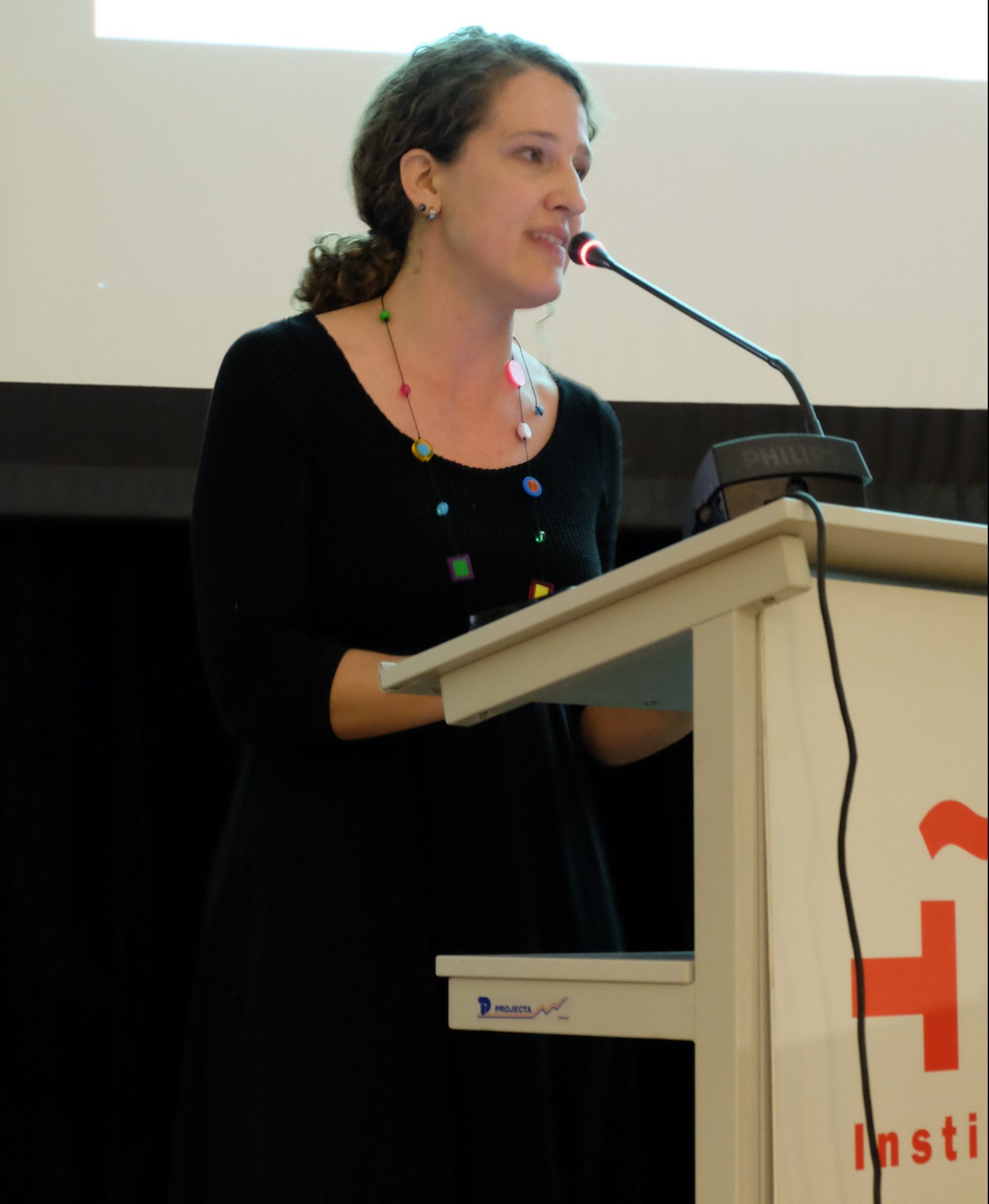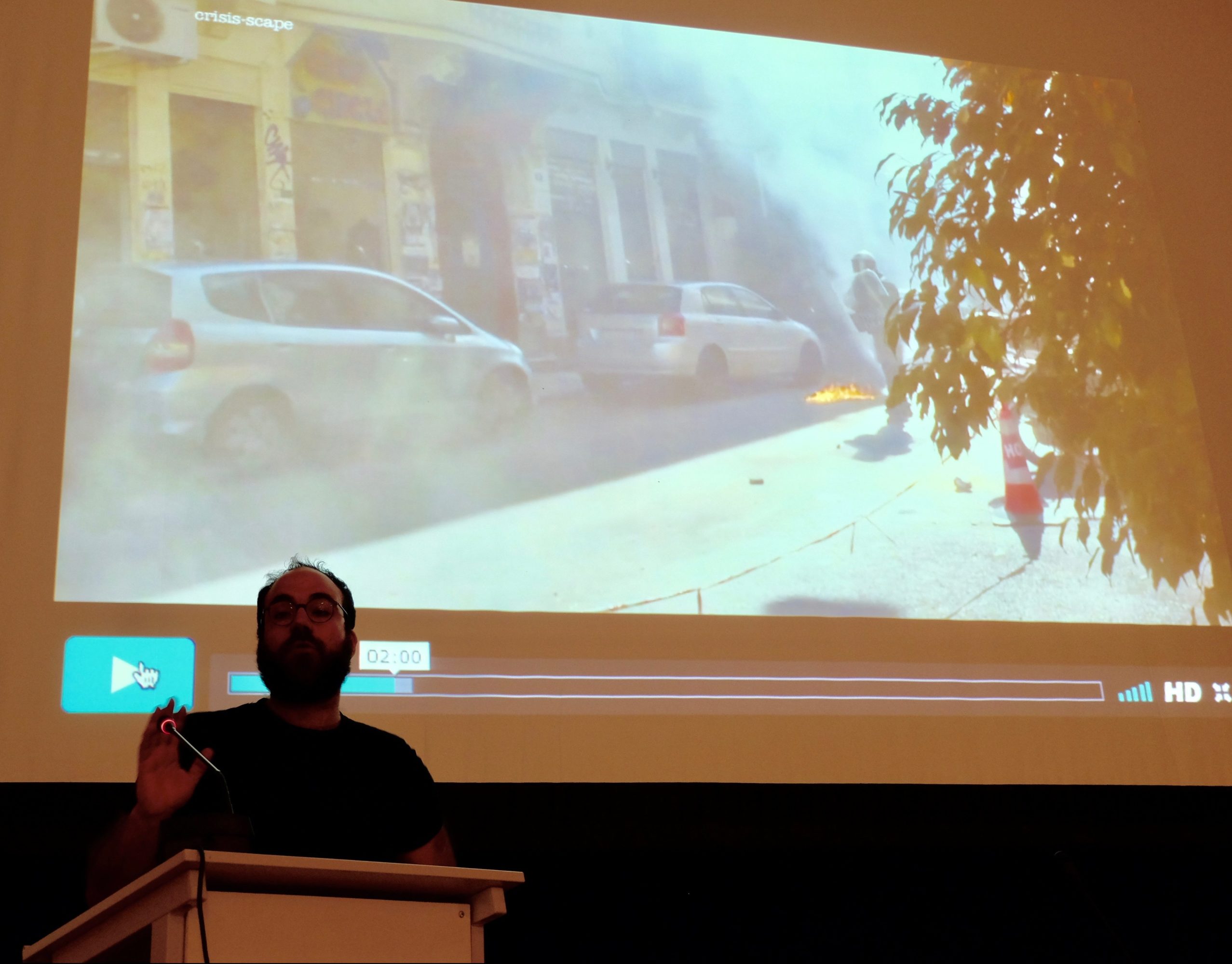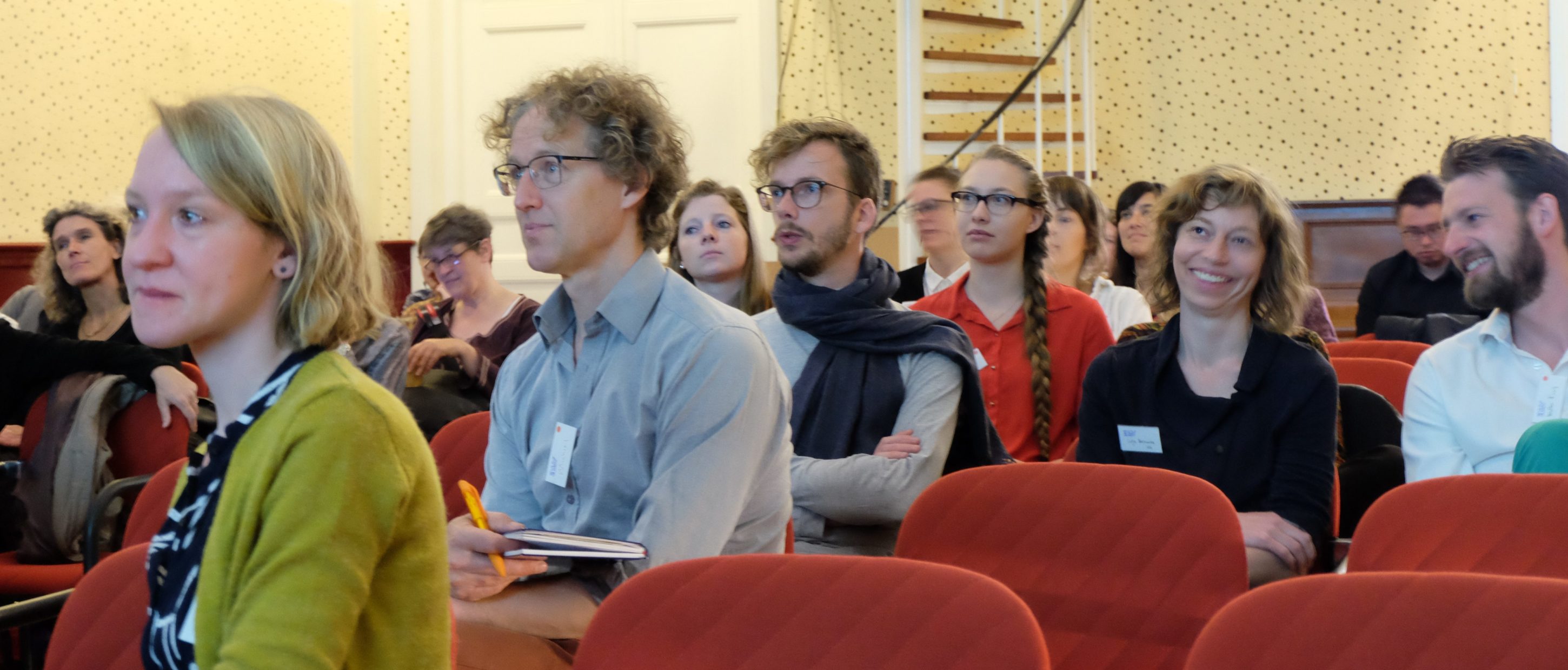On the 19th of May 2017 the annual Anthropology Day organized by the Dutch Anthropology Association (Antropologen Beroepsvereniging), titled “Solidarity”, took place at Instituto Cervantes in Utrecht.
 Taking Greece as the object of discussion, keynote speakers Katerina Rozakou and Heath Cabot elaborated on the rise in popularity of the term ‘solidarity’. Problematizing the concept from the outset, Rozakou explains how the Mediterranean in general and Greece in particular, have been subject to exoticization in anthropological research due to concepts that moved from the European centers of knowledge towards the periphery, resulting in the occurrence of ‘Greek ethnography’ or ‘Mediterranean anthropology’. Only since the 90s the number of academics stemming from the Mediterranean grew so that the idea of this region as a ‘cultural area’ diminished in anthropological research.
Taking Greece as the object of discussion, keynote speakers Katerina Rozakou and Heath Cabot elaborated on the rise in popularity of the term ‘solidarity’. Problematizing the concept from the outset, Rozakou explains how the Mediterranean in general and Greece in particular, have been subject to exoticization in anthropological research due to concepts that moved from the European centers of knowledge towards the periphery, resulting in the occurrence of ‘Greek ethnography’ or ‘Mediterranean anthropology’. Only since the 90s the number of academics stemming from the Mediterranean grew so that the idea of this region as a ‘cultural area’ diminished in anthropological research.
Both speakers frame the current solidarity boom in Greece within the multiple crises the country has faced in the past ten years, which has redirected the scope of humanitarianism from the periphery to the entire country. In other words, ‘solidarity is a part of Greek politics’. Advancing an alternative response to the crises, solidarity initiatives in Greece have some significant differences compared to similar movements elsewhere in Europe, the first being that it is not perceived as a ‘movement’ by the participants themselves.  Initiatives are carried out non-hierarchically and with minimal organization, participants don’t consider themselves to be ‘volunteers’, ‘samaritans’ or ‘the Red Cross’ (but rather wield the term ‘solidarian’) and reject the notion that solidarity has anything to do with charity. At the same time these initiatives consist for an increasing part of trained and specialized participants.
Initiatives are carried out non-hierarchically and with minimal organization, participants don’t consider themselves to be ‘volunteers’, ‘samaritans’ or ‘the Red Cross’ (but rather wield the term ‘solidarian’) and reject the notion that solidarity has anything to do with charity. At the same time these initiatives consist for an increasing part of trained and specialized participants.
But does this mean we are experiencing a new phase in ‘solidaritarianism’? And if so, what does this mean for such initiatives? Does solidarity prevent the bureaucratic hierarchy of charity or does it complicate the cooperation of big and small NGO’s? How do we deal with the blurring of concepts or risk of idealizing everything related to solidarity? The answer to these questions, according to the speakers, lies in careful consideration of how people are classified through these solidarity processes and how they create, use and move through time and space.
Visual anthropology
In the panel on visual anthropology we initially returned to the situation in Greece. Speakers Dimitris Dalakoglou and Anna Wilma Xilakis spoke of their experiences from fieldwork in Greece, focusing particularly on academia and the position of the researcher. Being a politically sensitive phenomenon, studying solidarity initiatives requires conscious deliberation about what you want to achieve and how you participate as a researcher. In other words, are you strictly studying solidarity or are you also ‘doing’ solidarity as a researcher?
The last speaker in this panel, Anja Hiddinga, brought some fresh perspective to the discussion on the researcher’s position in studying solidarity. As mother of a deaf child she explained how deaf people in the Netherlands have been marginalized. Only since the 60s deaf people are considered a minority cultural group, and sign language has for a long time been regarded as an inferior way of communicating. As history has shown a relation of domination and patronization between hearing and deaf people,  Hiddinga emphasizes the importance of building a solidarity movement among deaf people in order to improve their position in society.
Hiddinga emphasizes the importance of building a solidarity movement among deaf people in order to improve their position in society.
Pricing solidarity
In a completely different approach to the concept of solidarity the Pricing solidarity panel invited the audience to work out the conditions of a life insurance. Can smokers take out life insurance? Or people over 60? How many funeral guests should the insurance cover? And should we pay taxes for life insurance? Interesting questions that evoke numerous thoughts on the weighing of individual preference and societal benefits. A question that resonated was whether recognition of the ‘common good’ rests solely with the individuals taking out an insurance, or whether insurance companies should play a role in this as well.
Discussion Workshop
Based on several statements with regard to the responsibilities towards (1) the respondents, (2) science, (3) society and (4) our students, Peter Versteeg chaired a workshop where the integrity and realization of an anthropological code of ethics were discussed.
“Ethics are only interesting when there is a dilemma and that is what it is all about. It is not about rules of thumb.”
The goal of this workshop was to address some of the uncertainties that exist when it comes to profiling anthropological research within the academia. It was mentioned that the need for a code of ethics was derived from psychological research based on medical codes. The discussion wasn’t only about whether there should be a code of ethics, but rather what this code of ethics should be and how it should be developed. Some stated that it is all about the attitude that the researcher develops through his or her experiences. Questions with regard to the democratizing of anthropological data, the responsibilities of the researcher and the professional position of anthropology as a discipline were also addressed. There was no consensus on how these issues should be handled. This shows that these kinds of debates should be held in order to move forward as a discipline and as anthropologists. Although the need for a code of ethics was mentioned several times, it was emphasized that this code should not be a strict code, but should rather function as guidelines.
“Ethics is a practice, something that is constantly shifting. A code of ethics from 20 years ago would be very different now”

Student solidarity!
In this panel Nine de Jonge, Maria Chiara Coppola, two Anthropology Master students, and Marit de Looijer, who graduated from the Master International Development Studies, shared their experiences and findings from their thesis fieldwork. Nine, for example, explored how people from all over the world live together in the international community Auroville in India and how they cope with the problems that this entails. Maria, on the other hand, conducted her research in Lebanon where she lived for three months in a refugee informal settlement where a group of volunteers has been living for three years. Marit researched how spatial negotiations influence refugee hosting in South Lebanon.
These students showed how relationships were shaped based on or influenced by solidarity. After each presentation the students were asked questions about their own experiences and perceptions on what kind of solidarity they found and what the basis was for these kind of relationships. Based on the different kinds of fieldwork that these students did, they showed that the concept of solidarity can be questionable based on the context in which this concept is used.
Activism and Academia
During the final plenary session, four speakers (Martijn de Koning, Erella Grassiani, Mitchell Esajas and Anne de Jong) discussed the dilemmas that they encounter of anthropology and activism. These speakers shared how they combine anthropology and activism in their own way and how tis combination relates to solidarity and academic neutrality, politics and science, engagement and analytical distance.
The different stories and experiences that were shared by the speakers made it clear that every speaker had to make his or her own considerations based on the dilemmas that they faced. This also included the position that you take as your role as an academic, an activist or both. They spoke about the difficulty in balancing these positions and the possible consequences that profiling themselves as activists can have on them as individuals and even on their academic carrier. There is still a lot of debate on whether academia and activism can and/or should go hand in hand. However, the speakers expressed their passion for their field of interests and showed how they always managed to find the (right) balance between them.
